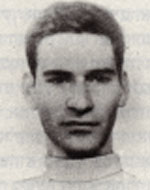Wheeler, Nathan
Nathan, son of Bruria and Zvi, was born on April 23, 1946 in Kiryat Matalon, Petah Tikva. After studying for two years in Kfar Haroeh, he learned that he actually preferred to engage in electricity, despite his love for agriculture and nature, and therefore left Beit- And went to study electricity in evening studies at the ORT vocational high school in Tel Aviv, and in the morning worked for Feuchtwanger as an electric contractor. Nathan excelled in everything related to the electric profession. He was a member of the Bnei Akiva movement in Petach Tikvah. He was a music lover and played the piano a lot. He spent most of his free time collecting stamps and never got bored, for he always found work to do. Nathan was drafted into the IDF at the end of July 1963, and volunteered for the parachuting Nahal Brigade, in the framework of the Nachal group in Ein Tzurim. After he was released from regular service he began to work. Nathan was highly organized, very punctual in his work, and knew how to do his work faithfully. He has always worked to improve and improve efficiency, and he has received awards of efficiency, praise and appreciation from his superiors at IAI (where he began working in 1968) on ideas and suggestions for improvement. In 1967 he married his girlfriend Drora and eventually had a son and a daughter. He fought with the paratroopers in the battles for the liberation of Jerusalem and was wounded. Before he recovered he left the hospital and went with his unit to fight the Golan Heights battles. This activity was awarded the “Six Day War”. In 1971 he volunteered for an elite unit of the Armored Corps. His commanders wrote in his opinion: “Nathan is sticking to the tasks that are imposed on him and he has a strong desire to help his friends.” During his service in the army, he tried not to worry about his family and made sure to write letters home, but he did not tell them anything about the difficulties and the dangers and the exhausting training, in order to keep them from worrying. When the Yom Kippur War broke out he was drafted and sent with his unit to the front in Sinai. He participated in the battles of containment and break-ins against the Egyptians and in the battle that took place on October 20, 1973, at the Oraha outpost on the western bank of the Suez Canal, Nathan was wounded and died of his wounds the next day in Rephidim after a long night of suffering. He was brought to eternal rest in the Petach Tikva cemetery. Survived by a wife, son and daughter, mother and sister. After his fall, he was promoted to sergeant. In a letter of condolence to the bereaved family, his commander wrote: “Nathan, the man and the fighter, was superior to all his friends.”
